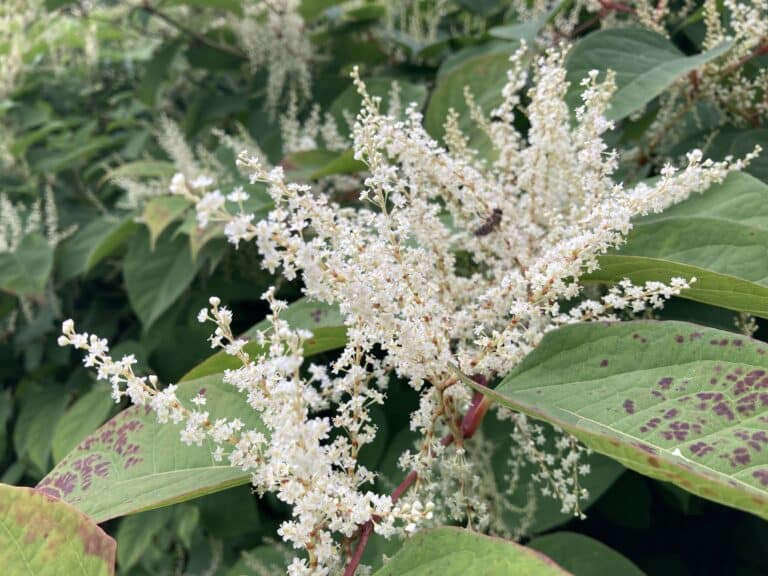
 Knotweed News
Knotweed News
Mortgages and Knotweed How Banks View Properties with This Invader
Author: WaW_admin
Date Posted: Friday 17th November 2023

0161 723 2000
8AM to 5PM

Author: WaW_admin
Date Posted: Friday 17th November 2023

Introduction
The presence of Japanese Knotweed, scientifically known as Fallopia japonica, on a property can significantly impact its market value and the ability of potential buyers to secure a mortgage. This invasive plant species, introduced to the UK from Japan in the 19th century, has become a major concern due to its rapid growth and strong, extensive root system known as rhizomes.
Impact on Property Value
The rhizomes of Japanese Knotweed can extend up to 7 metres horizontally and 3 metres deep, capable of penetrating weaknesses in foundations, drains, and walls, thereby causing substantial structural damage. This potential for damage is a nightmare for homeowners as it can lead to costly repairs and a decline in property value. For potential buyers, the presence of this plant on a property is off-putting, leading to a drop in market value due to the plant’s notorious reputation and the challenges associated with its eradication.
Implications on Mortgages
When it comes to securing a mortgage, the presence of Japanese Knotweed complicates matters. UK lenders are becoming increasingly wary of providing mortgages for properties affected by this invasive species due to the potential risks, costs associated, and the potential decline in the property’s value. Many mortgage providers request a professional survey if Japanese Knotweed is suspected or known to be on the property. Based on the survey’s findings, a lender might stipulate that a professional treatment plan and an insurance-backed guarantee be put in place before granting the loan.
Eradication and Management
Given the challenges posed by Japanese Knotweed, many homeowners and potential buyers opt for professional treatment services, although some may attempt to tackle the plant themselves. Its resilience and the potential for even a small fragment of rhizome to regrow make eradication a daunting task. Professional eradication typically involves herbicide treatment or, if necessary, mechanical removal. In some cases, it might take several years of treatment to ensure the complete eradication of the plant. Mortgage lenders often require proof of professional treatment and a guarantee that the plant will not return before they approve a mortgage.
Legal Implications
There are also legal considerations to bear in mind, aside from the mortgage implications. Under the Wildlife and Countryside Act 1981, it is illegal to plant or cause Japanese Knotweed to grow in the wild. Homeowners who allow the plant to spread onto neighbouring properties might find themselves facing legal action. Moreover, if a seller does not disclose the presence of Japanese Knotweed during a property sale, they can be sued for misrepresentation, leading to an increased emphasis on thorough surveys and transparency during property transactions.
Conclusion
The impact of Japanese Knotweed on the UK property market and mortgage sector is significant. Its rapid growth, potential to cause structural damage, and the challenges associated with its eradication are major concerns for homeowners, buyers, and mortgage lenders alike. As the UK continues to grapple with the challenges posed by this invasive species, potential homeowners need to be aware of the potential implications of Japanese Knotweed. Proper management, professional treatment, and transparency during property transactions can mitigate the risks and challenges associated with this tenacious plant.
Optimise your property’s mortgage potential and safeguard your investment from the clutches of Japanese Knotweed with the professional assistance of JKSL. Discover how our domestic solutions can provide a robust defence and eradication plan against this unwelcome invader by visiting our Domestic Mortgage Page.